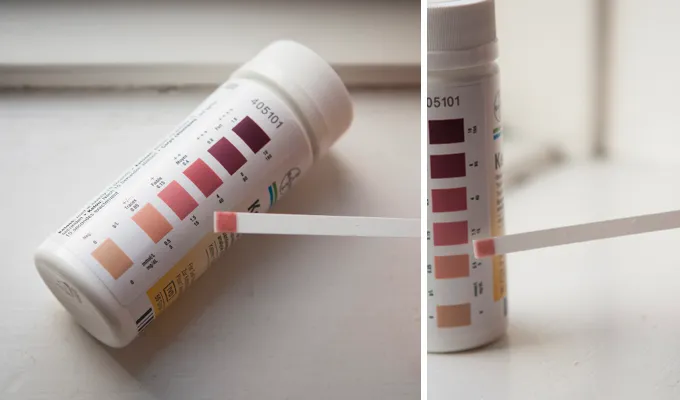It is a potentially deadly problem that occurs in people with diabetes and occurs when the body cannot use sugar (glucose) as a source of energy, because there is no insulin or this is insufficient.Instead, fat is used to obtain energy.
When the fat breaks down to provide energy to the body, chemicals called ketones are accumulated in the body.
Causes
As the fats break down, acids called ketones accumulate in the blood and urine.At high levels, ketones are toxic.This condition is called ketoacidosis.
Diabetic ketoacidosis (DKA) Sometimes it is the first sign of type 1 diabetes in people who have not yet received the diagnosis.It can also occur in someone who has already been diagnosed with type 1 diabetes. An infection, an injury, a serious disease, surgery or overlooking insulin can lead DKA in people with type 1 diabetes.
People with type 2 diabetes can also present DKA, but it is rare.It is generally triggered by a poorly controlled blood sugar level, overlooking medicines or serious illness.
symptoms
Common symptoms may include:
- Decreased state of consciousness
- Accelerated and deep breathing
- Mouth and skin dryness
- Redness of the face
- Frequent or thirst urination that lasts a day or more
- Fruit breath
- Headache
- Dolores or muscle rigidity
- Nausea and vomiting
- Stomachache
tests and exams
The ketone exam can be used in type 1 diabetes to detect early ketoacidosis.This test is usually done using a sample of urine or a blood sample.
The ketone exam is usually carried out when DKA is suspected:
More frequently, a urine test is first carried out.
If the urine test result is positive for ketones, the blood is usually measured in the blood.This is the most common ketones measurement.
Other exams for ketoacidosis include:
- Arterial gasometry
- Basic metabolic tests (a group of blood tests that measures sodium and potassium levels, renal function, and other chemicals and functions)
- Blood glucose examination
- Blood pressure measurement
treatment
The objective of the treatment is to correct the high level of glucose in the blood with insulin.Another objective is to replenish lost liquids through urination, inappropriateness and vomit if it has these symptoms.
If you have diabetes, your medical care provider probably told you how to detect DKA warning signals.If you think you have DKA, examine in search of ketones through urine strips or its glucometer.If ketones are presented, call your attention provider immediately.It is not delayed.Follow the instructions you give.
You may need to go to the hospital.There, you will receive insulin, liquids and other treatments for DKA.Then, doctors will find and treat the cause of this disease, such as an infection.
expectations (prognosis)
Most people respond to treatment within the first 24 hours.Sometimes, it takes more time to recover.
If the DKA is not treated, it can lead to a serious illness or death.
possible complications
Health problems that can occur as a result of DKA include any of the following:
- Accumulation of fluid in the brain (cerebral edema)
- The heart stops working (heart attack)
- Renal insufficiency
- When to contact a medical professional
When to contact a medical professional DKA is often an emergency.Call your attention provider if you notice the symptoms of this condition.
Go to the Emergency Room or call the local emergency number (911 in the United States) if you or a family member with diabetes presents any of the following symptoms:
- Decreased state of consciousness
- Breath with fruits smell
- Nausea
- Difficulty breathing
- Vomiting
Prevention
If you have diabetes, you must learn to recognize the preliminary warning signs and symptoms of the DKA.You should know when to do a ketone exam, for example, when you are sick.
If you use an insulin pump, you frequently review it to see that insulin is flowing through the tube and that there are no obstructions, twisting or disconnections.
alternative names
DKA;Ketoacidosis
References
American Diabetes Association.Standards of Medical Care in Diabetes - 2015. Care Diabetes.2015; 38: S1-S76.PMID: 25537706 www.ncbi.nlm.nih.gov/pubmed/25537706.
Pasquel FJ, Umpierrez Ge.Hyperglycemic Crises.In: Jameson JL, by Groot LJ, by Kretser DM, et al, eds.Endocrinology: Adult and Pediatric.7th ed.Philadelphia, Pa: Elsevier Saunders;2015: Chap 46.
Westerberg DP.Diabetic Ketoacidosis: Evaluation and Treatment.AM Fam Physician.2013; 87: 337-46.PMID: 23547550 www.ncbi.nlm.nih.gov/pubmed/23547550.
English version reviewed by: Brent Wisse, MD, Associate Professor of Medicine, Division of Metabolism, Endocrinology & Amp;Nutrition, University of Washington School of Medicine, Seattle, WA.Also Reviewed by David Zieve, MD, MHA, OGILVIE ISLAND, PHD, AND THE A.D.A.M.Editorial Team.








